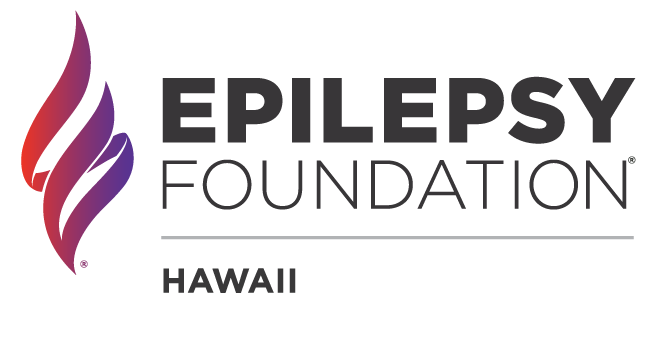This month’s Hot Topic was What’s your mood?, with neuropsychologist, Dr. Tanya D’Avanzo. I am so glad that I attended the session – I left feeling renewed and inspired. The experience reminded me of why I am committed to the Epilepsy Foundation of Hawaii, and how public awareness and understanding of epilepsy can help those affected by it.
About 15 people participated in the group session. We listened, shared, laughed, cried (OK, I was the only one who cried) and were inspired by the stories told.
Dr. D’Avanzo said that about 10% of people with epilepsy have depression, which can be demonstrated by persistent sadness or anxiety, lack of interest in normal pleasurable activities, lack of appetite, and insomnia for two weeks or more. Social isolation can be a sign of depression. Dr. D’Avanzo recommends that those with thoughts of suicide seek help. Compared to people with other chronic illnesses, people with epilepsy are more prone to depression, perhaps due to chemical imbalances.
The group shared stories of their own difficulty talking with others about epilepsy and feeling like they aren’t accepted by their parents. It honestly broke my heart to hear one person share that they don’t feel accepted by their parents and have been living with these feelings for decades. Even as adults, we want to please our parents. It was sad and upsetting at the same time. But, it made me look around the room at the parents who accompanied their adult children to the session. It reminded me that the world is changing, and the first step to accepting epilepsy is to understand epilepsy.
Perhaps this person’s parents would have treated their child differently if they understood epilepsy. Perhaps it wouldn’t have been so scary or embarrassing if they had talked about it. One person shared that it’s easier to say that they’ve had a stroke than to say that they have “the E word”. I found that so interesting. My guess is that more people know about strokes compared to epilepsy, so it’s easier to say you’ve had a stroke then to go into further discussion about epilepsy and seizures. This is exactly why I want everyone to learn about and talk about epilepsy – so that my son and others with epilepsy are comfortable talking about it too. I want Jax to grow up in a community that understands epilepsy so that he doesn’t feel it’s something to hide.
Dr. D’Avanzo brought up a quote from Maya Angelou:
“There is no greater agony than bearing an untold story inside you.”
Epilepsy can be an invisible disorder. The group talked about the positives of having epilepsy – like having a stronger drive to accomplish things and also having empathy for others. Dr. D’Avanzo reminded us that positive interactions have ripple effects stronger than negative interactions, and that assertiveness can help us deal with negativity. Actively talking about feelings and seeking support correlates to positive quality of life. Exercise, sleep, routines, order and structure are important and form healthy habits in our lives. She stressed that it’s important to communicate with your neurologist or physician, and also to communicate your depression with your loved ones. Express your feelings to your family by setting time to talk, developing a vocabulary for feeling words with young children, writing a letter to elderly parents, or even going to family therapy with adult children.
Dr. D’Avanzo also discussed medications for treating depression, and that you need to stay on a medication for six months to see its effectiveness. She said that you don’t develop tolerance or addiction to depression medications, which take about three to four weeks to work. You can visit www.hawaiipsychology.org to find a psychologist.
Dr. D’Avanzo reminded us to pay attention to those who drop off, and to check in with them. She also recommended surrounding ourselves with positive people –and that’s exactly what we did.
The session ended with the group sharing their accomplishments – such as going back to school and participating in competitive sports. We all stood together and learned a few karate moves from one participant whose energy and positivity brought smiles to our faces. Following up to what Dr. D’Avanzo said about being around positive people, I encourage everyone to be that positive person in others’ lives.
Thank you to those who attended our Hot Topics, and thank you to those who support the Epilepsy Foundation of Hawaii and enable us to continue group sessions like these.

